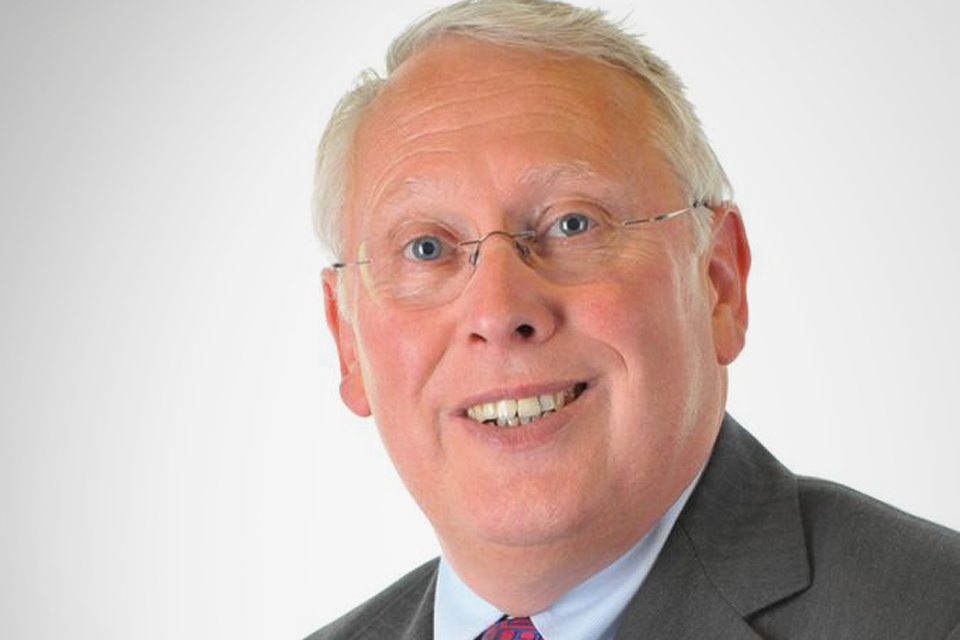Local government: rewriting the rules
Draft text of the speech - may differ from the delivered version. Early into the new coalition, we find ourselves facing tough choices around…

Draft text of the speech - may differ from the delivered version.
Early into the new coalition, we find ourselves facing tough choices around funding, which need to be balanced with the protection of front line services.
But a better, more ambitious future is possible. Because these challenges are not mere problems - they’re a mandate for change - genuinely radical change.
What does this change involve? The title of this conference asks if it means new power for local government. Yes, it does (there’s no question-mark needed at the end of that phrase!).
But it means deeper change than that. It’s got to be about the things we need to do collectively to produce what we’ve called the Big Society. A strong society, where individuals, families and communities are more able to take on responsibility to improve their lives.
It will mean three things:
- new powers transferred to but also beyond local government
- new freedoms for local government to get on with serving its citizens; and
- a new political culture, where we move away from the state - and especially government ministers - usurping the responsibility of families and local leaders.
What next
We want to hand more choice and more freedom back to local authorities, and the communities they represent. Activity should take place at most local level possible, to give people control and a real say in what happens in their area.
And you know better than anyone the current state of play on voter behaviour and satisfaction with services:
- barely a third of people bothering to vote in local elections
- fewer than half of people satisfied with their council
- only 33 per cent of people think their local council provides value for money
- and councils are less popular than dentists!
This has got to change. The balance of power between central and local government needs to be reset. It’s time to build a new system around our trust in people and professionals, and to stress the importance of the democratic mandate.
One month in, we’ve already put a decent down-payment on that promise:
- ending of CAA
- abolition of Home Information Packs
- handing back of powers to councils over garden grabbing and housing densities
- signalled our intentions around the scrapping of undemocratic regional strategies, regional assemblies and bins taxes
- started to de-ring-fence more grants to give more local discretion over funding - with more to come
- abolition of the Standards Board for England, whilst ensuring that Councillors will remain answerable to their electorate
- we have introduced a Bill to stop the restructuring of councils in Devon, Norfolk and Suffolk. This will save the taxpayer £40million in unnecessary restructuring costs.
This is just the start. We’ve said in the Coalition Agreement that we will “promote a radical devolution of power and greater financial autonomy to local government and community groups”. We want to make sure that we treat Local Government like grown-ups rather than insisting that a nanny state knows best.
And we mean it:
- new incentives so local communities benefit directly from business and housing growth
- a review of local government finance
- freedom for councils to decide their own structures
- building on the Sustainable Communities Act
- directly elected mayors with additional powers for the biggest cities
- we will work with local government to deliver a council tax freeze in 2011-12 while protecting vital local services
- and, of course, a general power of competence.
So, as Eric Pickles said the other day, all this means that there has never been a better time to be involved in local government. Our government will ensure - is already ensuring - that you get the extra freedoms and extra powers you need.
Much of this will be done through our planned Localism Bill to devolve greater powers to councils and neighbourhoods and give local communities control over housing and planning decisions. It will help set the foundations for the Big Society by radically transforming the relationships between central government, local government, communities and individuals.
The changes that will at last mean that there will be clearer accountability to the people you serve.
But I want to end on the most important point of all. We’ve got to use this opportunity to usher in not just a shift of power but of culture.
We’ll know we’ve been successful when it has become routine for local citizens - and for that matter the national media - to turn to locally-elected leaders for answers rather than the despatch box in Westminster. We want local deliverers to be much more accountable to the people they serve rather than focussing on Whitehall.
And that means decentralising from Whitehall through the town hall, starting with individuals, families, communities and voluntary groups.
Asking those hard questions about whether we can shift power more directly into people’s hands before we assume the state has the answer to their problems.
Because in the end, it’s not really a matter of the centre letting go or councils taking the lead. It’s not just a question of how much power can be shifted.
There may be sceptics who think that we’re not serious or that this can’t be done. We’ve already shown that we are deadly serious about localism. And we’ve proved how much can be done even in just a short time. With your help, there’s a lot more to be done.
So, together, let’s rewrite the rules.